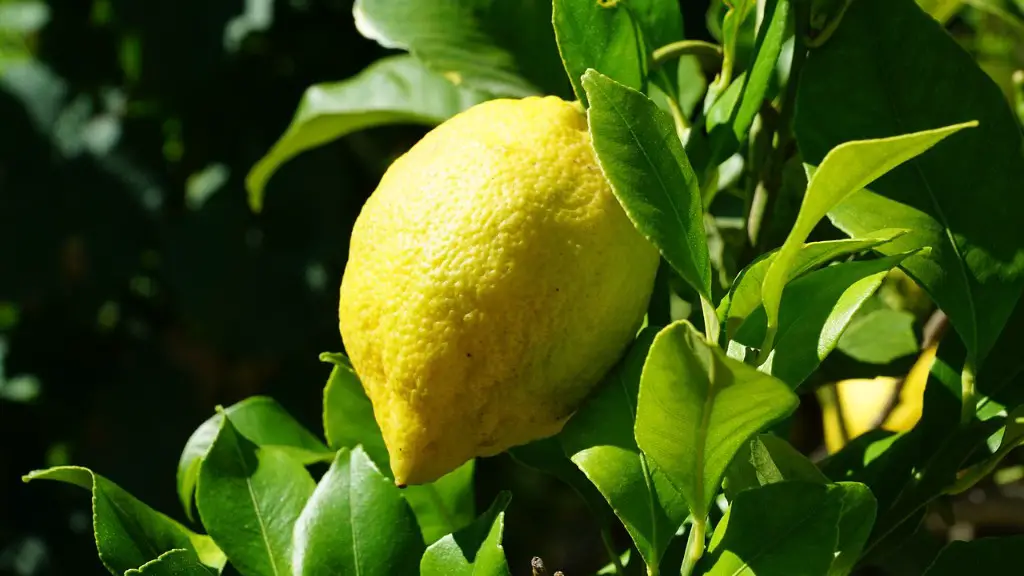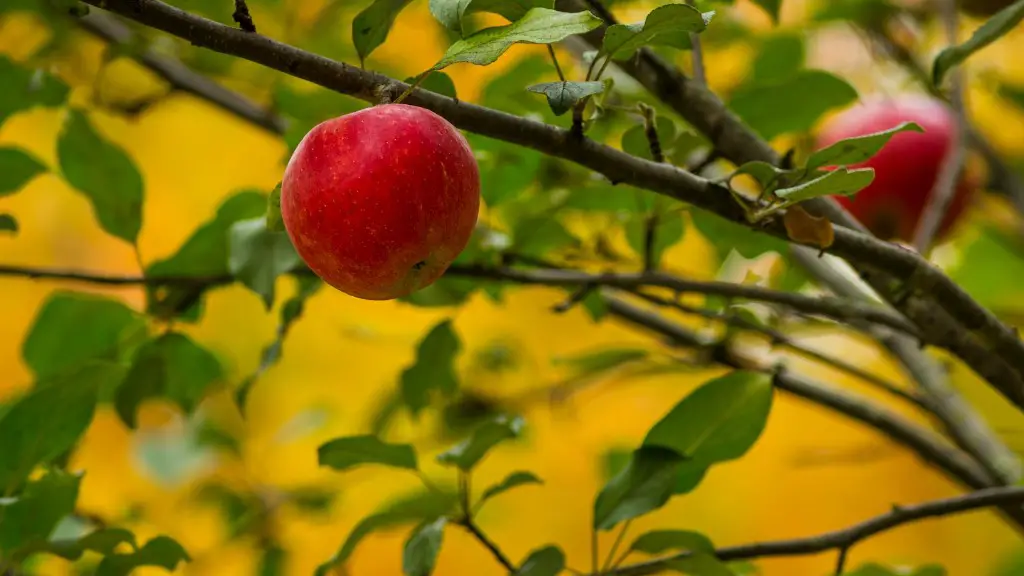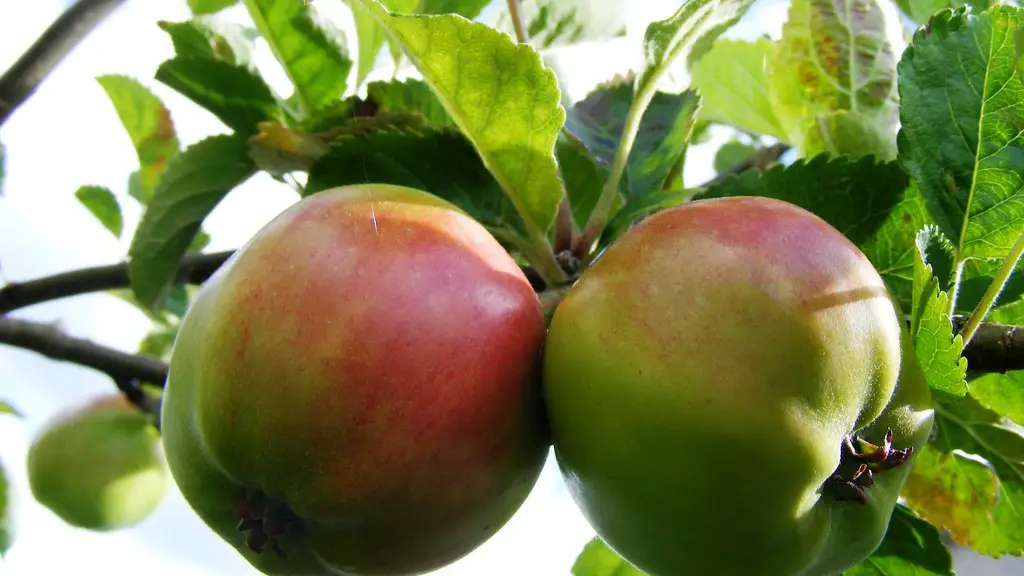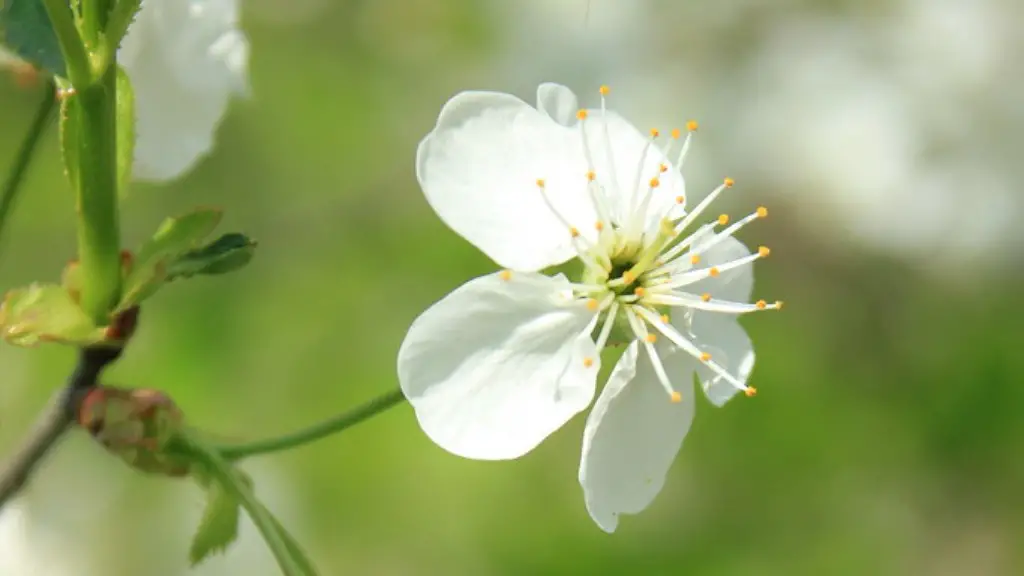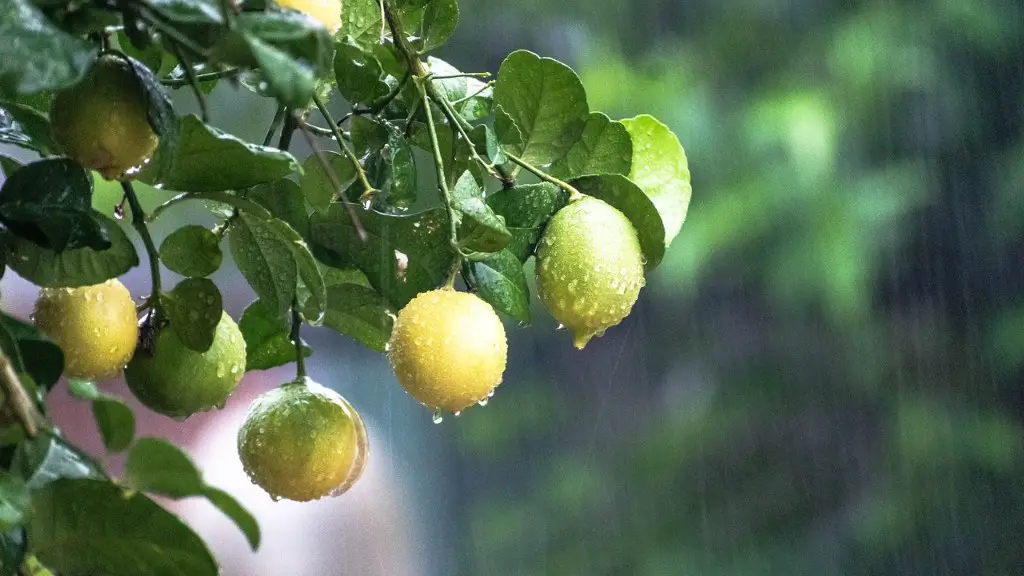Lemon trees can be a wonderful addition to any garden. But with so many varieties to choose from, it can be hard to work out which is the best one for your needs. To help you make an informed choice, we’ve put together an overview of some of the best lemon trees to grow and the different varieties available.
When it comes to citrus trees, the Eureka lemon tree is one of the most popular. This is a very hardy tree, which produces many juicy lemons that can be picked through-out the year. It’s also relatively easy to grow and the fruits are excellent for juicing. The Meyer lemon is another popular variety, which produces a more flavorful, sweeter lemon compared to other types. This tree is also easy to grow and the lemons can remain on the tree for a lengthy period of time without going off.
For those looking for an ornamental lemon tree, the Ponderosa lemon tree is a great choice. This large tree is covered in fragrant white flowers and yields an abundance of decorative, fruit-like lemons. Its fruits have a tart flavor and can be used to flavor many dishes. The Lisbon lemon is a classic type of lemon tree which produces large lemons with bright yellow, thin skins. They have a sharp and sour flavor, making them ideal for juicing.
If you live in a colder climate, the Lisbon lemon might not be the best option, as it prefers warmer temperatures. The Villa Italian living lemons tree maintains its foliage all year round, meaning it won’t suffer in cold weather. In addition to its hardy nature, this type of tree produces juicy, flavorful lemons with a sweet aroma. However, this tree requires some special care and attention when growing.
For those who want a truly unique experience, the Kaffir lime tree is a good option. This tree produces small, bumpy fruits with a strong, often fragrant scent. The flesh inside is rather sour and although not suitable for juicing, it can be dried or pickled for use in cooking.
Ultimately, when deciding on the best lemon tree to grow, you will need to factor in your local climate, available space and what purpose you want to grow it for. Each of these lemon trees offers something slightly different, so consider carefully before making your selection.
Eureka Lemon Tree
The Eureka lemon tree is a popular option for many gardeners due to its hardy nature and abundance of citrus fruits. Its Lemons have a tart flavor that can be used in a range of dishes and usually last on the tree for a significant length of time.
This tree is quite easy to grow and can withstand a variety of climates, making it a good choice for many growers. It is also resistant to pests which are a common problem amongst citrus trees.
The Eureka lemon tree should be pruned regularly to maintain its shape and size. After picking the fruits, you should carefully remove any diseased or damaged ones, as this can help protect the tree from disease.
It is important to ensure that the soil you use for growing is well-draining and compost-rich. This will help maximize the yields from your Eureka lemon tree and will also ensure that the fruit develops a strong flavor.
Overall, the Eureka lemon is an ideal choice for many gardeners due to its hardy nature and abundance of lemons. It is easy to take care of and offers a great flavor when it comes to the final product.
Meyer Lemon
The Meyer lemon is one of the most popular lemon varieties available, and it offers a delicious, sweet flavor compared to more traditional lemons.
Gardening enthusiasts will find that this tree is quite easy to grow, and it produces an abundant crop of lemons that can remain on the tree for an extended period of time without spoiling.
It is important to ensure that the soil used for growing Meyer lemons is enriched with compost, as this will help maximize yields. When planting, make sure the tree is adequately protected from strong winds and cold winters that can damage the fruits.
Regular pruning and thinning of trees is essential for this variety, as this can help maintain healthy growth and maximize yields. Pruning should be done after the trees have finished blooming.
Overall, the Meyer lemon is an ideal choice for many gardeners due to its reliable yield and sweet flavor. This tree is easy to maintain and sensitive to cold temperatures, making it a suitable choice for many climates.
Ponderosa Lemon
The Ponderosa lemon tree is a great choice for those looking to grow an ornamental tree that produces an abundance of decorative, fruit-like lemons.
This type of lemon tree is quite hardy and can survive a range of climates. However, it requires regular maintenance and care to ensure that it yields a large crop of fruits.
When planting, it is important to ensure that the soil around the tree is kept moist, as this can encourage strong growth and improve its resistance to disease. It is also essential to give the tree plenty of direct sunlight, as this will help boost yields.
The Ponderosa lemon tree can be prone to leaf and fruit diseases, so it is important to check for any signs of these problems and take appropriate remedial action. In addition, regular pruning is necessary to maintain the tree’s shape and size.
Overall, the Ponderosa lemon tree is a good choice for those looking for a decorative tree that produces an abundance of flavorful lemons. It is easy to care for, but requires plenty of maintenance to ensure good yields.
Lisbon Lemon
The Lisbon lemon tree is a classic type of lemon tree you will often find in many gardens. This tree produces large lemons with bright yellow, thin skins which have a sharp and sour flavor. This makes them ideal for juicing and cooking.
This type of lemon tree has a great resistance to disease and is relatively easy to maintain. However, this tree is sensitive to cold temperatures and should be given plenty of shelter if you live in an area with colder winters.
It is also important to ensure that the soil used is well-draining and enriched with compost, as this will help yield larger, fuller fruits. Regular pruning is also necessary to maintain the tree’s shape and size.
The Lisbon lemon tree has a slow growth rate and is somewhat drought-resistant, which makes it a popular choice for many gardeners. Although this tree takes a little extra work and care, it can be a great addition to any garden.
Overall, the Lisbon lemon is a good choice for those looking for a traditional type of lemon tree which produces quality, flavorful lemons. This tree requires a few special considerations, but is relatively easy to take care of and produces an abundance of lemons.
Kaffir Lime
The Kaffir lime tree is an interesting choice for many gardeners and provides a truly unique experience. This tree produces small, bumpy fruits with a strong, often fragrant smell. The flesh inside is rather sour and although not suitable for juicing, it can be dried or pickled for use in many dishes.
This type of tree is reasonably hardy and can survive a range of climates. However, it will require regular care and maintenance to ensure that it produces an abundance of fruity limes.
It’s important to ensure that the soil used for growing the Kaffir lime tree is rich in organic matter and well-draining, as this can help maximize yields. Furthermore, extra protection should be given to this tree in cold climates.
This tree is best planted in the spring to maximize the yield, but it can be planted at other times of the year if necessary. It is also important to prune it regularly to maintain its shape and size.
Overall, the Kaffir lime tree is an interesting choice for many gardeners. It requires some special care and attention when growing, but it provides a unique experience and yields delicious limes which can be used in many dishes.
